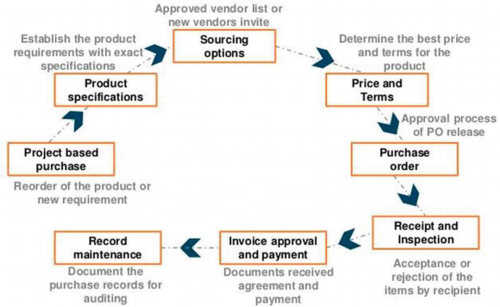Supply Management
Supply Management is defined as “The process of obtaining and managing of materials, components or services needed to operate a business or other type of firm. The elements of supply management contain the actual materials/components, budgets, information, and employees. The key purpose of this procedure is to keep costs stable and use resources effectively to increase the efficiency of the business and profits”
Most people consider supply chain management as the way corporations buy raw materials and finished goods. But supply management is more than simply buying products and contracting for services. It is a systematic business process that goes further than procurement to include the coordination of pre-production logistics and inventory management, along with budgeting, employees, and other key information to keep the business running smoothly.
The main goals within supply management are cost control, the efficient allocation of resources, risk management, and the effective gathering of information to be used in strategic business decisions.
Oversight and management of suppliers and their contributions to a company's operations, for example, should be of paramount importance. Supply management personnel within a company or institution are generally responsible for the following:
- Identifying, sourcing, negotiating, and procuring a service or good that is essential to a company's ongoing operations according to the wishes of the organization's leaders and supervisors
- Formulating a strategy for developing and maintaining relationships with suppliers — and then executing on it—as well as holding suppliers accountable
- Utilizing technology and procedures that facilitate the procurement process
- Considering the theories of supply and demand and what influence they have on supply management[1]
Supply management is a five-phase process:[2]
- It starts with the identification of the materials or components required to fulfill the requirement of the enterprise. During this phase, the need is to convert into a statement describing the materials or components required to fulfill the need. It is projected that around 85% of the cost of material is determined during this phase. In sophisticated and multinational firms, supply management professionals and pre-qualified vendors are involved in this phase.
- The second phase of supply management contains identifying the supplier who will best fulfill the need.
- The third phase comprises the process of establishing a reasonable and fair price for the material to be purchased.
- The fourth phase results in an enforceable contract for the purchase that fulfills the requirement of both firms (supplier and buyer).
- The last phase needs managing the relationship to guarantee quality and delivery time of the material. During this last stage, the supply management firm may work with the supplier in an effort to enhance the efficiency of the supplier with the objective of reducing cost and/or improving quality

source: Syed Abdul Rehman Khan and Zhang Yu
- ↑ Understanding Supply Management Investopedia
- ↑ What are the five phases of the Supply Management Process intechopen.com
